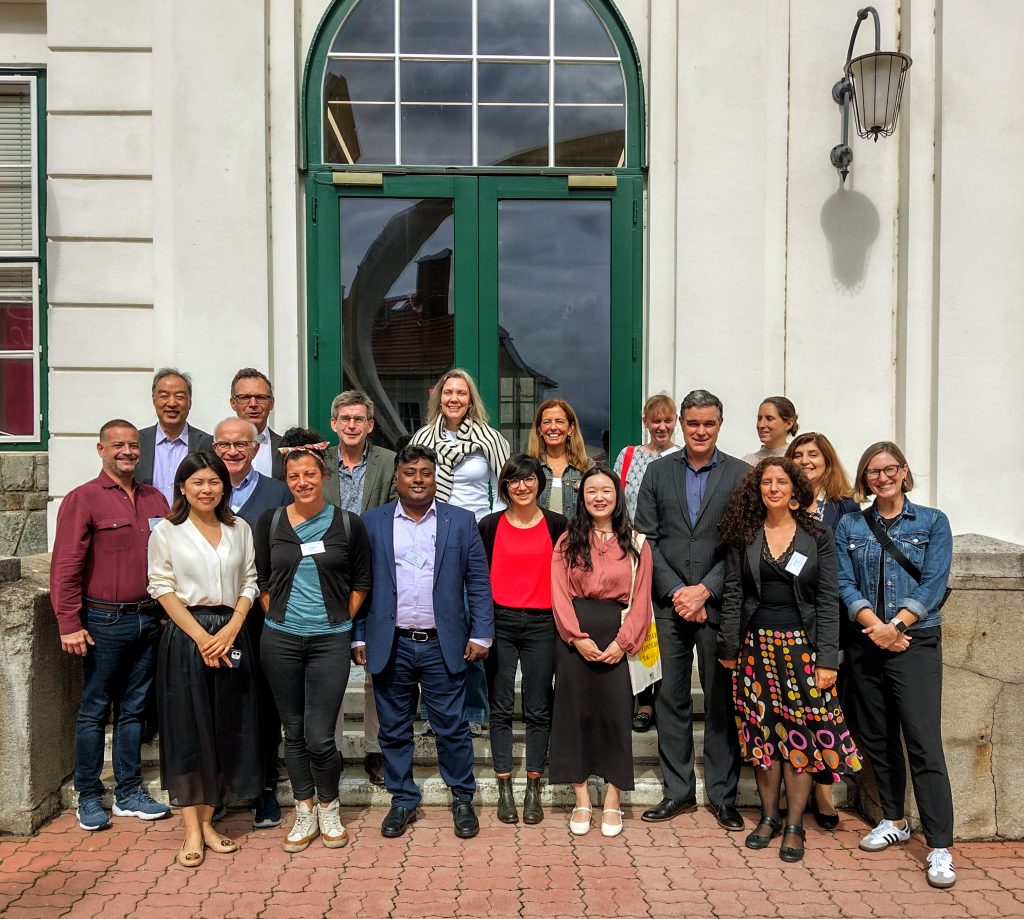
Higher education research field is growing but is increasingly fragmented, with well-established policy analysis centers and observatories often prioritizing data collection over critical analysis or cross-national comparison. In this competitive environment, the GOHEC has a unique intellectual and operational niche. Unlike large, state-funded observatories that focus on statistical data, the GOHEC functions as a network of networks – collaborative, intellectual hub that leverages the expertise of thematic groups to address complex, comparative, and forward-looking questions in higher education.
Unique features of GOHEC
Global comparative perspective
GOHEC adopts a comprehensive, worldwide approach to analyzing higher education systems. This unique feature allows for a deep understanding of interconnected challenges across different countries and regions, providing valuable insights into global trends and their local implications.
Focus on local changes that could manifest big trends
GOHEC places special emphasis on identifying and studying local innovations in higher education. This distinctive approach captures the complex and diverse landscape of educational changes, highlighting potential solutions that may have broader applications. By focusing on regional developments, GOHEC contributes to a more nuanced understanding of higher education evolution worldwide.
Diverse data sources and advanced analytics
Leveraging modern data collection and processing tools, GOHEC uniquely incorporates a wide range of information sources, including non-traditional ones such as full texts, social media, and websites. This comprehensive approach to data analysis provides a richer, more detailed picture of higher education trends and changes, going beyond descriptive statistics to offer deeper insights.
Collaborative research network
GOHEC serves as a hub for specialized networks of researchers, fostering collaboration among experts in various higher education fields such as finance, academic professions, governance, technology, and student mobility. This unique feature facilitates the exchange of ideas and methodologies, leading to more comprehensive and innovative research outcomes.
Efficient decentralized structure
GOHEC’s distinctive operational model emphasizes intellectual contributions and collaborative methodologies. This approach allows for effective functioning without relying on extensive external funding or expensive data collection infrastructure, demonstrating a sustainable and adaptable model for global research initiatives.
Integration with MARIHE program
GOHEC’s cooperation with the Master in Research and Innovation in Higher Education (MARIHE) (Erasmus-Mundus supported) program creates unique opportunities for student involvement in data collection and processing. This integration not only supports the observatory’s research efforts but also provides invaluable hands-on experience for students, fostering the next generation of higher education researchers and innovators.
